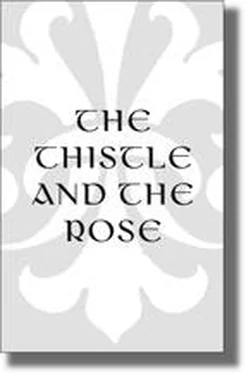Jean Plaidy - To Hold the Crown - The Story of King Henry VII and Elizabeth of York
Здесь есть возможность читать онлайн «Jean Plaidy - To Hold the Crown - The Story of King Henry VII and Elizabeth of York» весь текст электронной книги совершенно бесплатно (целиком полную версию без сокращений). В некоторых случаях можно слушать аудио, скачать через торрент в формате fb2 и присутствует краткое содержание. Жанр: Старинная литература, на русском языке. Описание произведения, (предисловие) а так же отзывы посетителей доступны на портале библиотеки ЛибКат.
- Название:To Hold the Crown: The Story of King Henry VII and Elizabeth of York
- Автор:
- Жанр:
- Год:неизвестен
- ISBN:нет данных
- Рейтинг книги:5 / 5. Голосов: 1
-
Избранное:Добавить в избранное
- Отзывы:
-
Ваша оценка:
- 100
- 1
- 2
- 3
- 4
- 5
To Hold the Crown: The Story of King Henry VII and Elizabeth of York: краткое содержание, описание и аннотация
Предлагаем к чтению аннотацию, описание, краткое содержание или предисловие (зависит от того, что написал сам автор книги «To Hold the Crown: The Story of King Henry VII and Elizabeth of York»). Если вы не нашли необходимую информацию о книге — напишите в комментариях, мы постараемся отыскать её.
To Hold the Crown: The Story of King Henry VII and Elizabeth of York — читать онлайн бесплатно полную книгу (весь текст) целиком
Ниже представлен текст книги, разбитый по страницам. Система сохранения места последней прочитанной страницы, позволяет с удобством читать онлайн бесплатно книгу «To Hold the Crown: The Story of King Henry VII and Elizabeth of York», без необходимости каждый раз заново искать на чём Вы остановились. Поставьте закладку, и сможете в любой момент перейти на страницу, на которой закончили чтение.
Интервал:
Закладка:
So Cecilia and he were married secretly and gave themselves up to the joy of being together; but of course the marriage could not remain a secret and Cecilia decided that she would tell her sister and ask her to pass on the news to the King.
Elizabeth was in a very happy mood. The coronation had been a great success; she found the King less formidable than he had seemed at first. He appeared to be growing fond of her. She adored her little Arthur though she saw very little of him; she was less worried about her mother now that a match was proposed for her, and there was an atmosphere of peace and serenity all about her.
Cecilia came to see her. There was a change in her. She seemed as though she were very happy about something, and yet at the same time a little apprehensive.
“I wanted to talk to you . . . as a sister,” she said.
“My dear Cecilia,” replied the Queen, “am I not always your good sister?”
“You look very happy today.”
“I am. Henry was so pleased with the coronation . . . apart from those people who got crushed to death.”
“Imagine risking your life for a piece of cloth!”
“I suppose it meant something more than that to them. Cecilia, Henry has been so generous to me. He has given me a grant of seven lordships and manors.”
“Seven. Why it was seven he took from our mother.”
“Our mother forfeited the right. . . .”
“I know. I know.”
Cecilia looked at her sister intently. “He has given you Waltham . . . has he?”
Elizabeth nodded.
“Waltham, Magna, Badewe, Mashbury. Dunmow, Lighe and Farnham.”
Cecilia began to laugh. “He has given you those which he took from our mother.”
“Why should he not? They were available.”
“No reason at all. But it is all so neat. And it keeps them in the family.”
“I think it is very good of the King.”
“To take them from our mother?”
“Our mother was fortunate. She could have been accused of treason. I consider he has been most generous . . . to us both.”
Cecilia thought: Be careful. Don’t alienate her. You need her help.
“Elizabeth,” she said. “I have something to tell you. I want you to do something for me.”
Elizabeth smiled. She really is a sweet-natured and generous creature, thought Cecilia. I should remember that when I criticize her.
“If it is possible . . .”began Cecilia.
“Tell me.”
“I . . . want you to speak to the King on my behalf.”
Little lights of alarm were in the lovely eyes; they were no longer quite so serene.
“Oh sister, what have you done?”
“I have married.”
“Cecilia!”
“Yes, you may well look shocked. I was determined to marry where I wanted to and I have done it.”
“But . . .”
“I know as the Queen’s sister . . . sister-in-law to the King . . . I should have had his consent. Well, I did not, Elizabeth.”
“But why . . . ?”
“You may well ask. For the simple reason that I feared that consent might not have been given if we asked for it.”
“Who is it?”
“Lord Wells.”
Elizabeth looked faintly relieved. “The King has a good opinion of him.”
“And should have. His family have firmly supported Lancaster for years. Elizabeth, will you please speak to the King for me? Will you plead for us? Tell him that we love each other, that no other will do for us, and that he must approve of what we have done.”
Elizabeth was uneasy. The King was not going to like this, and she was to be the one to tell him. How could Cecilia? Why did she not wait? She had always been so firm in her opinions; it had never been possible to shift her from them—for Elizabeth at least.
Elizabeth was sorry for her sister. She was fond of her family. They had been a very loving community. Deep in her heart she was worried about her mother. She fervently wished that people would live in peace with each other and not do things which were a source of irritation to others. She had to hide her anxieties about her mother . . . and now here was Cecilia. She did not know how the King would deal with the matter. She was afraid to anger him—although she had never seen him in anger. She remembered the violent rages of her father. They had not happened often and they were soon over, but he did have more than a touch of what was called the old Plantagenet temper. Henry had none of that. He was always calm, cold almost. She often felt that he considered carefully everything he said before he uttered it.
How he would feel about Cecilia she was not sure. She had had a notion that he was not anxious for her to marry. He had never mentioned a husband for her since their own marriage; and she had noticed that there was never any special place for Cecilia at functions.
Cecilia was now looking at her anxiously. She could see that she would have to take this matter to the King and it would be better for him to hear quietly through her than through any other source for it would not be easy to keep such a matter secret for long.
She said: “I will tell him, Cecilia.”
Cecilia had taken her hand and was looking at her earnestly.
“And you will explain that we love each other . . . that John wanted to ask the King but I would not have that. It was I who thought that if we were married first it would be too late to stop us.”
“I will tell him that, Cecilia. I will try to explain.”
“Thank you, sister.”
Cecilia kissed the Queen on the forehead.
She said: “It is almost as though we were little again. You and I were always good friends, Elizabeth. Do you remember . . . how we thought the others were such babies?” Elizabeth nodded. “And now you are Queen. It is strange but we always thought that Edward . . .”
Elizabeth flinched. It was foolish to bring up their young brothers at this time. Perhaps at any time. Nobody wanted to think of them now. Their disappearance must remain a mystery. To try to solve it might bring forth some evidence which certain people might find embarrassing.
Cecilia went on: “I know the King will listen to you. I am sure he must love you dearly.”
“He does,” said Elizabeth firmly. At another time Cecilia might have said that he loved the alliance they had been able to make between the two houses, but not now. This was not the time.

It seemed only in the bedchamber that the Queen could be alone with the King.
Elizabeth’s women had departed. She was in her long white nightgown, her golden hair in two long plaits giving her a childish look. Soon the King would come in and she was preparing what she would say to him.
When he came there was that somewhat forced smile on his pale face. He was always gentle and kind; it seemed to her that he was grateful for his good fortune in becoming King but was always on the alert lest someone should take the crown from him. He was fond of her. She had in certain moments of self-revelation wondered how fond, or whether his fondness was for what she stood for, not for her person.
She had asked for nothing for herself. She did not want jewels or extravagant pageants. Moreover she knew that Henry would never have given them. He had explained to her that the exchequer was in an unhealthy state. Her father had been extravagant but because of the pension he had had for some years from the King of France he had made the country prosperous. But that pension had stopped before his death. Uneasy times had followed his death; the perpetual unrest culminating in the Battle of Bosworth had impoverished the country. He was determined to crush extravagance, and she would not dream of asking for unnecessary luxuries.
But she would have liked to ask for her mother to come back to Court, though she accepted the fact that it would be impossible because her mother had really committed an act of treason.
Читать дальшеИнтервал:
Закладка:
Похожие книги на «To Hold the Crown: The Story of King Henry VII and Elizabeth of York»
Представляем Вашему вниманию похожие книги на «To Hold the Crown: The Story of King Henry VII and Elizabeth of York» списком для выбора. Мы отобрали схожую по названию и смыслу литературу в надежде предоставить читателям больше вариантов отыскать новые, интересные, ещё непрочитанные произведения.
Обсуждение, отзывы о книге «To Hold the Crown: The Story of King Henry VII and Elizabeth of York» и просто собственные мнения читателей. Оставьте ваши комментарии, напишите, что Вы думаете о произведении, его смысле или главных героях. Укажите что конкретно понравилось, а что нет, и почему Вы так считаете.












